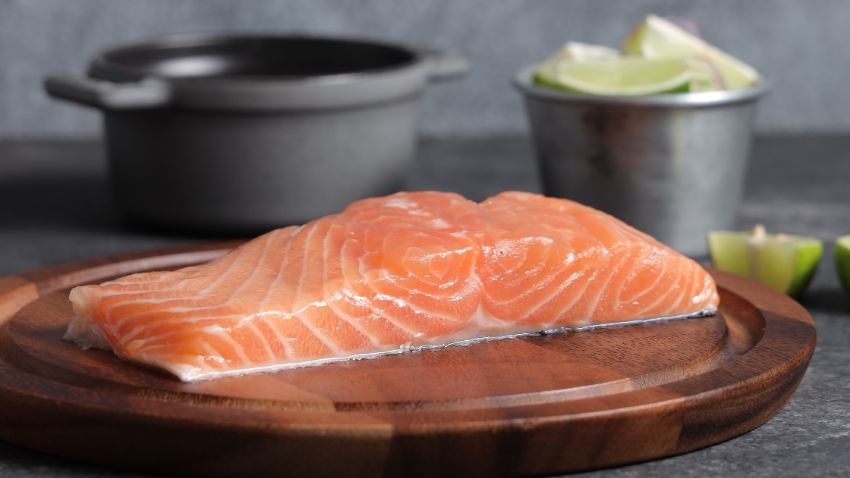During the Christmas holiday season, a considerable number of consumers flock to supermarkets seeking to purchase smoked salmon, a cherished and traditional festive delicacy. However, a newly proposed legislation by the European Commission is putting into jeopardy the quality and the price of this product that will have significant impact on the European market.
Salmon processing holds a vital place in Europe's fish processing industry. Every year, not less than 300 million portions of salmon-based products are brought to consumer plates like yours tonight. However, the latest regulatory proposal by the European Commission threatens to disrupt this major industry, with potential repercussions on the entire European supply chain and threatening thousands of jobs.
In the realm of fish processing, a crucial but often overlooked production step is the so-called stiffening – a process applied by fish processors to ensure the safety and quality of their smoked salmon products. Upon arrival at processing plants, fresh salmon is first being filleted, skinned and smoked. The processed salmon then undergoes the critical stiffening production step, for which the temperature is reduced between -4 and -14°C for slicing purposes. Stiffening not only allows for easier slicing but also serves as a safeguard against harmful bacteria, including the toxic Listeria monocytogenes, reducing food waste and adhering to the highest production and health standards.
The stiffening process is applied under widely recognised sectoral guidelines, called the HACCP standards, which internally determines stiffening time while ensuring compliance with food safety requirements and flexibility for large-scale production. And, indeed, EU hygiene regulations make it mandatory for operators to have in place such HACCP based standards.
However, in December, the European Commission put forward a Delegated Regulation amending the principal EU law on the hygiene of food of animal origin, which will negatively impact the business operation of salmon processors in Europe. The Delegated Regulation seeks to impose a stringent 96-hour time limit on the stiffening process. This time limit would overrule any standard with a longer time frame that for years have proven to be safe and efficient. While regulatory oversight is crucial, the proposed timeframe lacks endorsement from the European Food Safety Authority (EFSA), an omission that raises concerns about the Regulation's impact on public health. Over the past months, these primary concerns have been raised by major players of the European fish processing industry, as it became clear that the European Commission did not consult EFSA before adopting the draft legislation. While independent studies, such as the one carried out by the Silliker Food Science Center, found no safety risks associated with an extended stiffening period, the European Commission has decided to disregard the industry’s calls. No further engagement with EFSA during the draft legislation’s consultation process was sought.
Over the past months, these primary concerns have been raised by major players of the European fish processing industry, as it became clear that the European Commission did not consult EFSA before adopting the draft legislation. While independent studies, such as the one carried out by the Silliker Food Science Center, found no safety risks associated with an extended stiffening period, the European Commission has decided to disregard the industry’s calls. No further engagement with EFSA during the draft legislation’s consultation process was sought.
In the absence of a thorough examination of the proposed timeframe's impact on food safety by the European Food Safety Authority, the European Commission's stance appears unfounded. Yet, the representatives of the fish processing industry believe that a robust scientific foundation is essential to evaluate the influence of stiffening time on processed fish product safety, quality, and consumer well-being.
In the absence of a thorough examination of the proposed timeframe’s impact on food safety by the European Food Safety Authority, the European Commission’s stance appears unfounded
By imposing a rigid timeframe without scientific backing, the Delegated Regulation could force leading EU fish processors to shift away from their traditional processing method, compromising food safety and quality, and increasing food waste. Furthermore, the newly proposed rules do not introduce any transitional period that would allow the fish processing industry to adjust their operational environment. This would not only contradict established industry practices but also endanger the jobs of thousands of workers, ultimately undermining the competitiveness and sustainability of large-scale fish processors across the EU.
In conclusion, the fish processing industry re-iterates the need for evidence-based decision-making and a careful evaluation of the draft regulation's broad implications. Seafood industry from other member states may be behind this call. Fish processing is not just about delivering a product: sustaining jobs, ensuring food safety and above all it's about preserving tradition for producers and consumers. Striking a balance between regulatory oversight and industry sustainability is paramount. As the European Parliament and Member States deliberate on this matter, we strongly encourage them to consider the consequences of rigid regulations on an industry that plays a crucial role in Europe's food industry, the livelihoods it sustains, and the joy it brings customers’ around Europe, who desire nothing but tasteful celebrations to kick off 2024 and the years to come.
Poland and Denmark are two of the largest salmon processors in Europe. Together, they supply approximately 60% of the smoked salmon to the European market, contributing to making them the leading suppliers of a processed salmon products on the EU internal market together with France, Germany and Netherlands. Additionally, both serve as the key export markets for Norwegian salmon, accounting for around 500,000 tons of Norway's salmon exports annually.